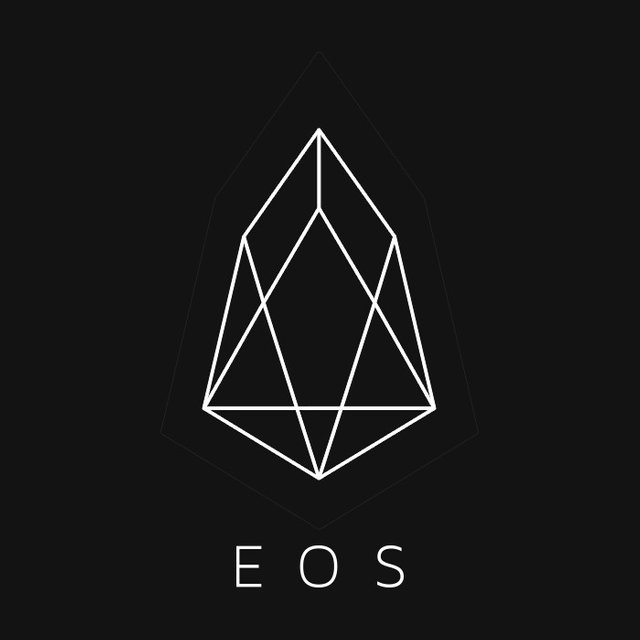The True Potential Of Blockchain Technology is So Much Greater Than Cryptocurrencies and Investments. Can EOS Finally Give Individuals A Practical Means For A Decentralized Internet?
There has never been a technology that has held the same potential to grant freedom, transparency, security, and privacy for so many individuals around the globe.
Trading and investing in cryptocurrencies can be very promising, but the true power of blockchain technology is absolutely revolutionizing. While currently nearly all projects are simply considered cryptocurrencies because they issue tokens that make a specific blockchain do various tasks, but I think that we will start to see a shift away from the term cryptocurrency in the following years. There are projects that are attempting to tackle problems such as distributed access to medical records in under developed countries, various payment services and methods of transferring value, and so many more. While many blockchain projects that have gained success so far are methods of transferring value and producing and enforcing smart contracts, the technology has not even begun to approach its full potential in my opinion.

The power of the blockchain is absolutely revolutionary, and has the unique ability to finally present a practical method for individuals to increase their freedoms and increase efficiency in the process. The projects that have me the most excited are the projects like Ethereum and the upcoming project EOS, because I think these projects introduce a whole new level of practicality and use cases to the blockchain space. The very foundation of today's internet is riddled with centralization and intermediaries that absorb much of the value that the internet as a whole generates. The individuals who were on the ground floor of developing the internet actually feared that centralization would present itself after some time, but they made it clear that it was not in the best interest of the users.
Instead of simply building an investment vehicle, Blockchain technology can change the foundation of the internet as we know it.
There has always been a group of users and individuals who have felt very strongly in favor of a decentralized and open internet, but before now there hasn't been a practical method to achieve this type of internet. A project where any user can participate and verify the network is completely revolutionary, and the advantages that it contains could easily pave the way for an adoption of a whole new meaning to the internet. The idea of having no central or major points of control over the internet have origins back to the very establishment of the internet, because a decentralized network of computers is less prone to major outages or aggressive interference.
Ethereum presented the idea of a virtual machine running on the blockchain several years ago and has had major success since its launch. The Ethereum network can support approximately 30 transactions per second, and although this is significantly higher than the Bitcoin network, the limited number of transactions would hold Ethereum back from being able to support mainstream adoption of the project. While many individuals still see tremendous promise in the Ethereum project, the technical issues that the network faces could prove to be detrimental to the network in the future. While the EOS project was first announced several months ago, information and more details about the project are emerging that are making it look like it may hold the best chance of success of any project currently.

The EOS platform will implement the graphene based blockchain like Steemit and Bitshares, and as many of you may know graphene based systems are currently the most efficient and fastest systems out there. A fast, easily scale-able, and practical blockchain that enables a wide range of applications and projects to run on it is exactly what blockchain technology has been missing. Developers can currently utilize the Ethereum platform to create DApps or distributed applications, the Ethereum blockchain would encounter many large technical issues as users and activity increases, and are ultimately capped at a certain speed due to gas restrictions. While changes could be implemented to potentially improve transaction capabilities and speed, the changes would likely take some time to implement and develop.
The true implications of a truly decentralized 'internet' are still often times not fully comprehended.
The internet is the best example of being able to connect with anyone in the world in a more practical and beneficial way than ever before, but if the internet was truly decentralized the advantages for users would be dramatic. Instead of trying to get companies, firms, and governments to grant individuals the privacy that they deserve, individuals can finally take the power into their own hands to achieve the internet privacy they are deserved. Institutions and governments will never be honest and trustworthy when it comes to users information and data, so the best chance individuals have is to circumvent this surveillance and collection through the necessary means.
Firms and governments will likely do their best to instill doubt in these types of projects as they gain success, because they will realize that the adoption of these types of technology limit their abilities and control over the world's data. While they may see initial success in the form of some individuals being hesitant at first, eventually I believe that the decentralized internet will become a reality eventually.

During the 1990's and early 2000's, Microsoft attempted to instill doubt in Linux and the open-source software community as a whole. In a famous interview the CEO at the time Steve Ballmer referred to Linux as a 'cancer' and didn't hide his stance that open-source software posed threats to users and the software community as a whole. This was very effective for numerous years, because it likely had a large impact on many individuals feelings regarding Linux. When we consider that currently over 90% of the worlds supercomputers and a vast majority of the worlds severs run on Linux based operating systems, we can see that the practicality and the quality of the technology eventually won in the end. While Windows is seeing a steady decline in users, especially in business and server applications, Linux desktop and server varieties are seeing greater levels of support and success than ever before.
While the efforts of major firms initially likely had an impact, eventually the power of the technology won out. I personally imagine that the same type of thing will happen with blockchain technology, especially decentralized virtual machine projects. A decentralized internet truly has the potential to change everything individuals thought they know about the internet, and the firms that currently control much of the internet will not looses their grips lightly. Seeing interference in the form of negative publicity from traditional media outlets and government interference are to be expected initially, but in the long run the power of the technology will undoubtadly cause it to be adopted. Individuals have never been granted the means to increased digital freedom as the EOS platform provides, and the enhancement of personal freedom for so many around the globe is so much bigger than profits or creating a 'profitable' platform, but I assume EOS will prove that the two can coexist.
I really hope that you enjoyed this post! I have read abundant material on the EOS project, but the whitepaper and Github have still not been released. Their is expected to be a testnet this summer, so its okay to be excited. Please feel free to leave any comments, questions, additional input, ect. below. Thanks for reading!
If your interested in learning more about the upcoming EOS project, I recomend you subscribe at eos.io and continue your search from there!
@cryptofreedom Excellent/insightful post... Thank You
UpVoted, Following new & Resteemed... please consider following me.
I'm 11 days new, learning everyday. Thanks again @cryptofreedom
I'm bookmarking this post..I can't wait to read it.
Great Article. I'm still waiting for a useful Dapp. So far...all the Dapps I've encountered are just novelties or proof of concept. Cheers @cryptofreedom.
Great article! A lot to think about. The next couple of years will be interesting!
Thanks for this intro! As far as I get it, EOS pretends to be a decentralised operating system while Ethereum position itself as a decentralised platform. Sounds very similar. Are the differences between them rather technical? Do they play in the same field?
They may be in the same field, but they are very different. EOS is an operating system, which supports applications and platforms just like Ethereum does. EOS will be farly supirior in a technical sence, because of the graphene system's structure compared to Ethereums. EOS will be extremely faster and have a much easier ability to scale compared to Ethereum. Thanks for reading!
Thanks for writing! :)
I have heard people refer to them as crypto-assets in the past.
I'm wondering how much this will mean while there are still "gatekeepers" who control access to the internet itself? Net Neutrality keeps popping up in various incarnations here in the U.S.. Are there any viable technologies coming that will be able to "de-centralize" access itself?